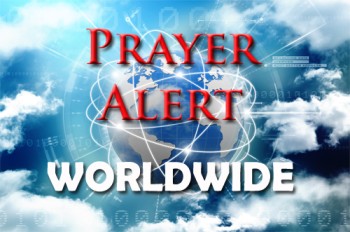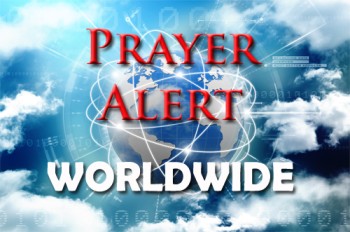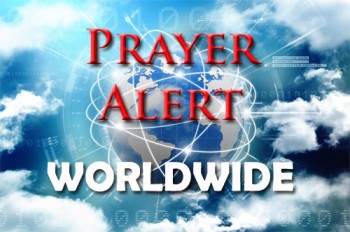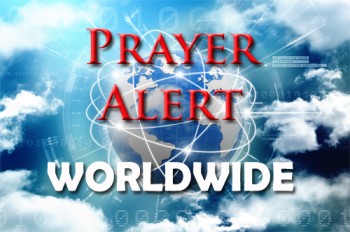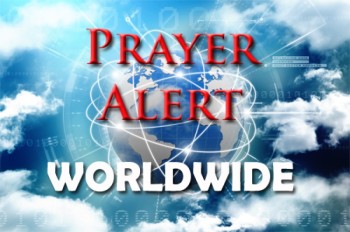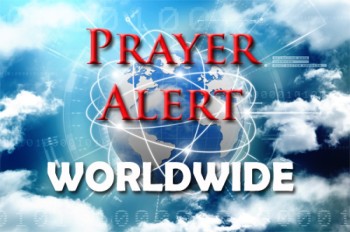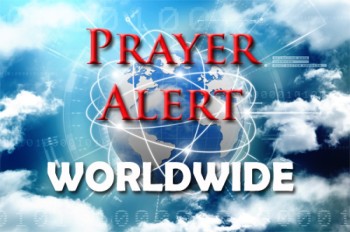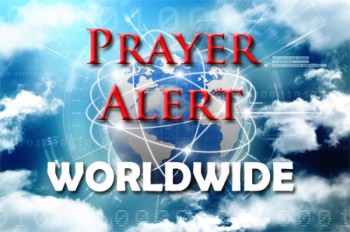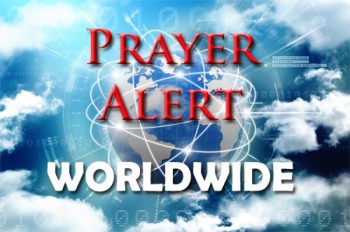Displaying items by tag: Asia
Japan: a great example of embracing Christ’s peace in troubled times
Political unrest; environmental changes; natural disasters; human rights violations; war and famine; migration. The list could go on: all of them are causes of widespread anxiety and stress. While experts recommend practical strategies like healthy living, Christians also turn to prayer, scripture, service, and witness. History offers models of resilience during turbulent times, such as Japanese author, minister, and activist Toyohiko Kagawa. Born in 1888, he lived through poverty, war, natural disaster, and political unrest, yet maintained joy and hope. His poetry reflects a spirit unbound by chains, seeking light and peace in Christ. He worked for justice, environmental stewardship, women’s suffrage, and peace, which earned him several jail sentences but also a nomination for the Nobel Peace Prize. His final words were 'Please do your best for world peace and the church in Japan’. His life shows us how to navigate chaos: embrace Christ’s peace, shine his radiance, and let joy endure.
Israel: plans to build 3,000 houses in contested West Bank settlement area
Far-right finance minister Bezalel Smotrich has announced plans to approve over 3,000 housing units in the contested E1 settlement area between Jerusalem and Maale Adumim in the occupied West Bank. Long frozen due to international opposition, the project would physically separate East Jerusalem from the rest of the West Bank, undermining prospects for a contiguous Palestinian state. Smotrich declared the plan would ‘bury the idea’ of such a state, describing it as an assertion of Israeli sovereignty. Settlement expansion is considered illegal under international law, though Israel disputes this. The announcement comes amid growing international momentum toward recognising Palestinian statehood, which Israel opposes. Critics warn that the move deepens annexation, fuels conflict, and blocks the path to peace. Smotrich, together with national security minister Itamar Ben-Gvir, was sanctioned by the UK in June over ‘repeated incitements of violence against Palestinian communities’ in the occupied West Bank: see
China / USA: trade truce extended for a further ninety days
Donald Trump has extended the trade truce with China by another ninety days, narrowly avoiding a major escalation between the world’s two largest economies. The announcement came just hours before the previous deadline was to expire, averting a spike in US tariffs on Chinese imports and likely retaliatory action from Beijing. Both governments confirmed the extension, maintaining existing terms while allowing more time for negotiation. This delay is seen as a temporary relief for global markets and US companies which depend on trade with China. Earlier trade disputes saw tariffs soar to triple digits, severely disrupting international commerce and sparking volatility in financial markets. Although current tariff levels remain high, they are significantly lower than the peak rates imposed in May. Talks between Washington and Beijing continue, with hopes for a more permanent resolution and a possible summit between Trump and Xi Jinping later this year. However, key issues remain unresolved.
Gaza: is Netanyahu contemplating a full occupation?
After nearly two years of war in Gaza, Benjamin Netanyahu is reportedly preparing to escalate the conflict further by ordering a full military occupation of the territory, despite international outrage, domestic opposition, and dissent within Israel's own military. Critics allege that his push is politically motivated, aimed at preserving his fragile coalition and delaying his corruption trial. Analysts question whether the Israeli army, already strained and suffering from troop shortages and internal resistance, can sustain such an operation. Over 600 ex-military officials have urged Donald Trump to intervene diplomatically, stating that in their professional opinion, Hamas no longer poses a strategic threat. Despite widespread destruction, the goal of rescuing all the Israeli captives has not been achieved. Public support continues to decline, and many accuse Netanyahu of prioritising political survival over peace or national security. Further escalation could deepen the humanitarian catastrophe and international isolation.
India: relationships with the USA take a downward turn
US-India relations entered a turbulent phase when Donald Trump tore into India for its continued oil imports from Russia and slow progress on trade negotiations. Formerly close to Prime Minister Narendra Modi, Trump, accusing India of funding Russia’s war in Ukraine, has vowed to raise tariffs on Indian exports to 50%. India regards its Russian energy imports as economically necessary; it has a longstanding relationship with Russia and is among the largest importers of Russian oil. Modi’s government has so far resisted Trump’s pressure, particularly over opening up US access to the heavily protected agriculture and dairy sectors. In response to Trump’s belligerent language, Modi has called on citizens to buy only Indian-made goods, leading to greater economic self-reliance. Political commentators note that it will be very difficult for Modi to give any large concessions in a trade deal, given the growing anger within India towards Trump.
Waves reach US west coast after Russian earthquake as Japan lifts tsunami warnings
One of the most powerful earthquakes in recorded history struck off Russia’s Kamchatka Peninsula on Wednesday, registering a magnitude of 8.8. Occurring in the Pacific Ring of Fire, the quake triggered tsunami warnings across Japan, Hawaii, the U.S. West Coast, and other Pacific nations, prompting evacuations of over two million people. Fortunately, no deaths were reported. Kamchatka, known for seismic activity, experienced intense tremors, causing panic and damaging buildings. Tsunami waves exceeding 5 meters struck Severo-Kurilsk, flooding ports and sweeping away boats. A volcano on Kamchatka also began erupting after the quake. In Peru, over half of Pacific ports were closed as a precaution. Videos from the region showed calm heroism in hospitals during surgeries and chaos as residents fled in fear. Though the most severe threats have passed, aftershocks are expected. Authorities have urged vigilance, and emergency services remain on high alert. This event underscores the vulnerability of nations situated on seismic fault lines and the need for preparedness and compassion in times of natural disaster.
Cambodia and Thailand agree to ceasefire
Thailand and Cambodia have agreed to an immediate and unconditional ceasefire following deadly border clashes that escalated last week. The breakthrough came during mediation talks in Malaysia, hosted by Prime Minister Anwar Ibrahim. Both Cambodian Prime Minister Hun Manet and Thai acting leader Phumtham Wechayachai expressed gratitude for the mediation efforts of Malaysia, China, and U.S. President Trump - who reportedly made ceasefire a condition for future trade discussions with Washington. Clashes between the two nations have historical roots, including a long-standing dispute over an 11th-century temple near the border. The most recent escalation, which began after the death of a Cambodian soldier in May, displaced over 300,000 people. The ceasefire, effective from midnight local time, will be followed by a meeting between military commanders and defence attachés, coordinated under ASEAN. Both sides described the talks as constructive and expressed hope for rebuilding trust and restoring normalcy. This agreement marks a vital step toward long-term peace and stability in a region long plagued by territorial tensions and sporadic violence.
Pastors and other Christians Brutalized in Odisha State, India
Twenty pastors were brutally attacked in Kotamateru village, Odisha state, India, while attending a Christian seed-blessing ceremony on June 21. Local villagers, armed with axes, knives, and wooden sticks, ambushed the pastors as they left the event, accusing them of religious conversions. Despite prior verbal police approval and peaceful intentions, the pastors were violently assaulted, leaving 30 injured and 10 hospitalized with severe wounds. Among the victims was Sukra Madi, 52, who remains in critical need of surgery his family cannot afford. Eyewitness accounts and video evidence confirm the deliberate nature of the attack, yet no arrests have been made. Police instead pressured Christians into a coerced “compromise” agreement, allegedly using language barriers to secure misleading signatures. When over 7,000 Christians protested the police inaction, authorities responded by filing criminal charges against 30 Christian leaders. This incident reflects a broader pattern of increasing hostility towards Christians in India, which now ranks 11th on Open Doors' World Watch List. Pastors and families continue to pray for justice, healing, and freedom to worship peacefully.
Bangladesh: at least fifty killed after jet crashes into school
A tragic accident occurred in Dhaka when a military training jet crashed into Milestone School and College, killing at least twenty people and injuring more than 186. The F-7 aircraft, which had just taken off for a training mission, experienced a mechanical fault and struck a two-storey school building, igniting a massive fire. Many of the victims were children, with seventeen confirmed dead and dozens more suffering critical burns. Witnesses, including students and teachers, described scenes of horror and devastation as the crash unfolded during school dismissal. Emergency services rushed to the site, with seven hospitals treating victims, most of them aged between 10 and 15 and suffering from fuel burns. Families frantically sought loved ones, and many volunteers offered to donate blood. The pilot, who died in the crash, reportedly tried to divert the aircraft away from populated areas. The government has launched an investigation and declared a national day of mourning.
Japan: prime minister expected to resign
Japan’s prime minister, Shigeru Ishiba, is expected to resign following a major electoral defeat that saw his Liberal Democratic Party (LDP) lose its coalition majority in the upper house. Ishiba, who has held office for less than a year, has struggled with waning public support and the rise of nationalist parties like Sanseito, which campaigned on a 'Japanese first' platform. The LDP has faced increasing pressure over issues such as inflation, a shrinking workforce, and growing immigration concerns - areas populist groups have capitalised on. Despite initially pledging to remain in office, Ishiba is now consulting former prime ministers about his future. He is also pursuing a controversial $550 billion trade deal with the United States that would lower tariffs on Japanese goods in exchange for greater U.S. market access. While the proposed deal has economic significance, Ishiba’s political fate appears sealed. Observers warn that the shifting political landscape could steer Japan towards more nationalist policies if moderate leadership continues to weaken. see

